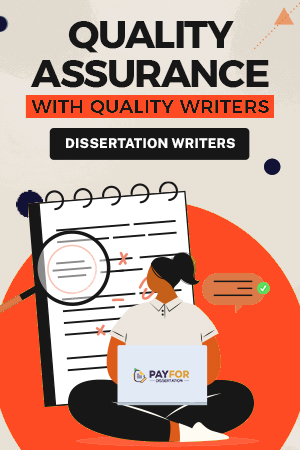
Common Mistakes to Avoid in Your Dissertation Proposal
A dissertation proposal is the climax of work in the student's academic life, especially at the postgraduate level. It is the building block of the whole research. It also serves as a roadmap as you summarise everything in the proposal, which you are going to explain in the research. While it is relevant, students make the most common errors that can lead to delays, rejection, or futile revisions. Averting such mistakes and being cautious about them can make the difference between a well-done, accepted proposal and one which is unacceptable in terms of scholarship standards. Now, you can also take assistance from an online dissertation proposal writing service and get your work done by professionals.
Listed below are some of the most frequently made mistakes by students observing dissertation proposals.
Lack of Clear Research Objectives
Among the most prevalent issues with dissertation proposals is a lack of explicit research goals. Research goals are the backbone of the whole dissertation, as they direct all stages of the research process, from a literature review to methodology, data analysis, and conclusions.
Why it's a Problem:
Lacking specific objectives, the proposal becomes purposeless. It can mislead the reviewers, make the study appear purposeless, and reduce the academic contribution of the study. Ambiguous objectives cannot help to establish if the research is practicable, meaningful, and groundbreaking.
How to Avoid It:
- Ensure that all the goals are well-aligned with your study question and desired outcomes.
- Using fewer numbers of objectives will help in staying focused
Overlooking Methodological Justification
Methodology is presenting an argument as to why one method rather than another is being used. Proposals have a tendency not to state why they are selecting their methodological process, and it harms the validity of the proposal.
Why it's a Problem:
Without methodological rationale, no one knows whether the proposed methods will be sufficient to obtain the research questions. Reviewers can doubt the validity or reliability of the product of poorly explained methods.
How to Avoid It:
- Justify all your chosen methods (qualitative, quantitative, or mixed) with erudite justifications.
- Justify your means of data collection (interviews, surveys, experiments, etc.) as optimal.
- Discuss limitations and ethics.
Poor Literature Review Structure
Literature review demonstrates that you know the existing research and how your study will contribute to it. A poorly organised literature review can discredit the proposal and seem as though you have not conducted enough background research.
Why it's a Problem:
A poorly organised or shallow literature review cannot demonstrate research gaps and connect your study to existing scholarly debate. It also results in duplication of existing research.
How to Avoid It:
- Organise the review thematically, and not as a list of authors.
- Compare studies critically instead of summarising them.
- Identify the gaps, contradictions, or issues left unresolved by previous research that your work will resolve.
- Link previous research to the proposed study.
Inadequate Time Planning for Proposal Submission
Time management is a silent killer of scholarship. Most students overestimate the amount of time they will take to write a good research proposal, and thereby end up producing subpar work, submitting late, or not submitting at all.
Why it's a Problem:
Badly written or late submissions can be rejected, require extensive rewriting, or affect your ability to continue studying for your degree.
How to Avoid It:
- Be realistic for completing every part of your research writing
- Diving work is very important to complete on time and to reduce stress
- Always leave some space for revising the work to submit a refined version
- Utilise tools like Gantt charts or academic calendars to track progress.
Weak Problem Statement and Research Questions
Problem statement and research questions define the purpose and scope of your dissertation. If they are unclear, too broad, or irrelevant, the entire proposal is affected.
Why it's a Problem
Poorly worded or poorly directed research questions will lead to inaccurate objectives and incorrect methods.
How to Get Out Of It:
- Accurately describe the problem to be solved by your study.
- Its significance and implications are to be explained.
- Formulate exact and researchable questions.
Using Vague or Unsupported Claims
Most students exaggerate or generalise in proposals without evidence. Expressions like "This is the world's best problem" or "There is no literature available on the topic" with no quotations or references disqualify the proposal.
Why it's a Problem:
- Unsupported statements ruin the academic credibility of your work. They reflect poor research and may be interpreted to be unreliable.
- Support all claims utilising quotations from good academic sources.
- Don't generalise.
- Phrase accurately and precisely in neutral language.
- Precisely say how your argument is supported in the literature.
Neglecting Proper Proposal Formatting and Guidelines
All institutions have clear guidelines and format requirements for a dissertation proposal. Without those, it can lead to direct rejection or revision requests.
Why it's a Problem
Poor formatting is a sign of negligence. It may also reflect that the most essential components of the proposal are missing or ineffectively incorporated into the academic campus of the university. These mistakes are small but can have a big impact on your overall research so make sure to avoid.
How to avoid it:
- Follow headings, citations, references, and page layout formatting rules.
- Employ proper academic wording and tone.
- Get to know the guidelines of your institute
- Place all the sections, such as the title page, abstract, methodology, and references, which are required.
Ignoring Feedback from Academic Advisors
Ignoring their advice or not catching up with them now and then is a blunder. Feedback from advisors must be taken seriously and quite often. They are the ones who have gone through this step several times and will also be marking you at the end. So make sure to visit them as often as you can to refine your research.
Why it's a Problem:
It could lead to your proposal being lower than departmental standards or institutional requirements. It is also depriving yourself of worthwhile advice and criticism on improvement.
How to Avoid It:
- Catch up with your advisor occasionally.
- Submit drafts and be open to positive criticism.
- Challenge their comments in an attempt to understand their suggestions.
- Apply feedback and monitor changes in subsequent drafts.
More Tips for Refining Your Research Proposal
Avoiding mistakes is important, but at the same time, make sure that you include positive points in your proposal to make it a better. Do check out the following tips for writing a good proposal.
1. Choose a Pincicle and a Relevant Topic
Topic selection is one of the major accomplishments if it is done wisely. Always look for topics which keep you going, ones which you are interested in. Neither choose too specific nor a too broad dissertation topic.
2. Provide Academic Originality
Elaborate on how your research will bring more knowledge to the field of research. And how your research will introduce new or disprove previous theories.
3. Avoid Jargon
Avoid the use of technical terms unless you must use them. Be simple so reviewers from other academic fields can read and comprehend your proposal. If using technical terms is necessary, then explain them at the end or the beginning.
4. Proofreading is a must
This part of the research is often overlooked, which is a big mistake. Always make sure that your research is free of errors. Now, several software programs help in refining your draft, such as Grammarly, peer review, etc.
5. Include a Specific Research Timeline
Include a timeline of when you will be done with each step of the research. This shows you have a realistic strategy.
6. Understand the Requirements
Read your university or department’s guidelines carefully. Know the structure, length, and formatting style expected.
7. Write a Strong Problem Statement
Explain the issue your research will address. Show why the problem is important and worth studying.
8. Develop Sharp Research Questions or Hypotheses
Make sure they directly relate to your problem statement. Keep them clear, focused, and researchable.
Conclusion
Most often, the opportunity that is set aside with sufficient time and effort for the goal of an effective dissertation proposal ends up being rewarded. Think of the simple errors, such as ambiguous aims, poor time management, unsubstantiated claims, and procedural guidelines that one has the option not to follow, and one would see that the fewer errors one commits, toward the acceptance of the proposal, the better. And above all, the written proposal serves as the major pillar on which a smooth dissertation experience will rest.
Exclusive, thorough consideration from the problem statement to the methodological justification should be taken in demonstrating the commitment to academic excellence alongside the ability to contribute meaningfully to the field of research. More than just once or twice, you may come across suggestions best rejected, yet at other times, adhere to them.
Summary
A good dissertation proposal needs clear goals. Many students make common mistakes. They often write unclear research questions. Some choose the wrong research methods. Others do not plan their time properly. Many forget to follow formatting rules. Some ignore advice from their teachers. Avoiding these mistakes leads to a better proposal. It also improves the overall quality of the research.
